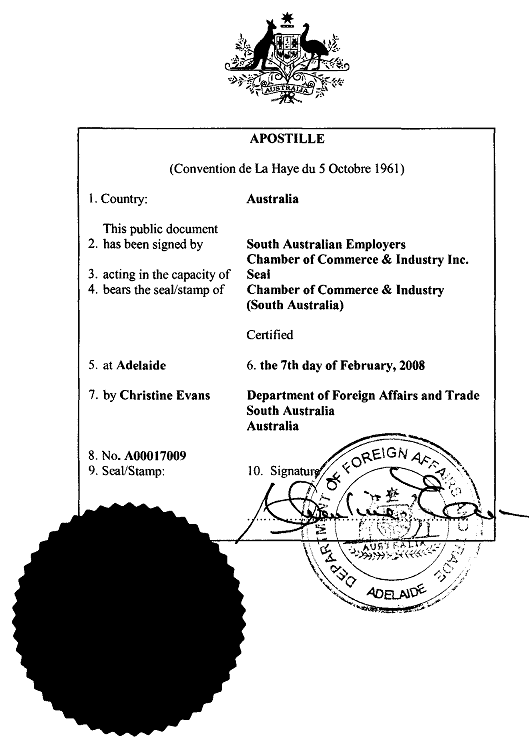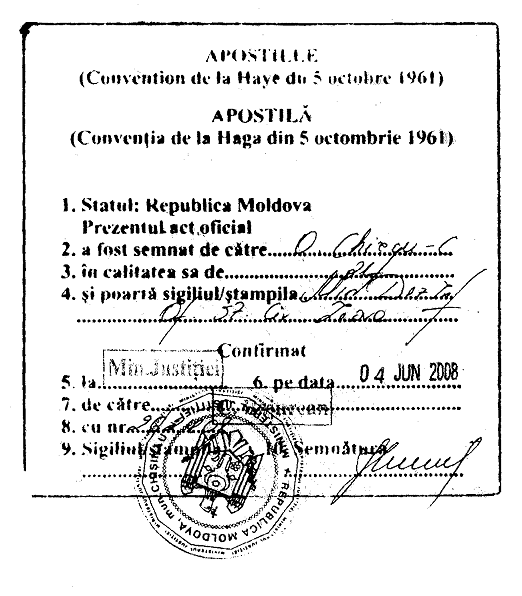Apostille Certification

We provide Apostille services for all documents and all major countries of the World. Our specialized services for acquiring Apostille UK, India, United States of America, Australia, Ireland, South Africa and New Zealand, are most sought after by our elite clients.
Apostille certifications are used in many cross border situations such as international marriages, international relocations, applications for studies, residency or citizenship in a foreign State, inter-country adoption procedures, international business transactions and foreign investment procedures, enforcement of intellectual property rights abroad, foreign legal proceedings, etc.
Apostille Certifications have reduced the stressful and rather expensive process of legalizing a public document to just a single formality of issuing an authentication Apostille certificate.
Apostille certification is very helpful when public documents are required to be produced in a foreign country. Applicable in 122 Contracting States also known as Apostille Hague Convention countries, Apostilles are issued millions of times a year and utilized by both individuals and businesses alike.
Further an Apostille Stamp does not expire as the 1961 Hague Convention has not prescribed any time limitation with regards to the effect of an Apostille Certification. The Apostille will remain valid as long as it is identifiable and remains attached to the underlying public document.
Apostille certification is a perfect method for authenticating the origin of a public foreign document in the Hague Convention countries or the contracting states. As an effect of an Apostille Certification:
- The authenticity of the signature on the public document gets certified,
- The capacity in which the person signing the document acted gets certified, and
- Where appropriate, the identity of the seal or stamp which the public document bears gets certified.
We provide Apostille certification for all kinds of Public Documents

The Apostille Convention or Hague Convention of 5 October 1961 (Abolishing the Requirement of Legalisation for Foreign Public Documents), gives a very broad interpretation to the concept of Public Documents, to ensure that as many documents as possible should benefit from this simplified certification process.
Accordingly, any document executed by an authority or a person in an official capacity (i.e., acting in the capacity of an officer endowed with power to execute the document by the State) is considered a public document for the purpose of this Convention. Further the Special Commission has confirmed that it is for the law of the State of Origin to determine the public nature of a document (C&R No 72 of the 2009 SC; C&R No 14 of the 2012 SC).
It is not possible to establish a complete list of all public documents. The Apostille Convention in an endeavor to provide some guidance and certainty lists a broad set of four categories of documents that are deemed to be public documents for the purpose of this Convention.
- documents emanating from an authority or an official connected with a court or tribunal, including those emanating from a public prosecutor, a clerk of a court or a process-server (huissier de justice);
- administrative documents;
- notarial acts;
- official certificates which are placed on documents signed by persons in their private capacity, such as official certificates recording the registration of a document or the fact that it was in existence on a certain date and official and notarial authentications of signatures.
This list is by no means exhaustive (see C&R No 72 of the 2009 SC) and the Convention applies to all documents that are considered to be public document under the law of the State of Origin, even though it does not fall into one of the categories listed above.
Further the law of the State of destination cannot reject an Apostille certification on the basis that the underlying document is not considered a public document. However the law of the State of destination may determine the legal effect given to the underlying document.
The Apostille Convention does not apply to the following two categories of documents:
- documents executed by diplomatic or consular agents; and
- administrative documents dealing directly with commercial or customs operations.
Important related links
Certificate Attestation in India
Ministry of External Affairs Apostille
Apostille Certification services
FAQ – Frequently Asked Questions
Apostille for Education Documents
Apostille Seal Services for a wide range of documents
Apostille Notary Services for a wide range of documents
Hague Convention countries